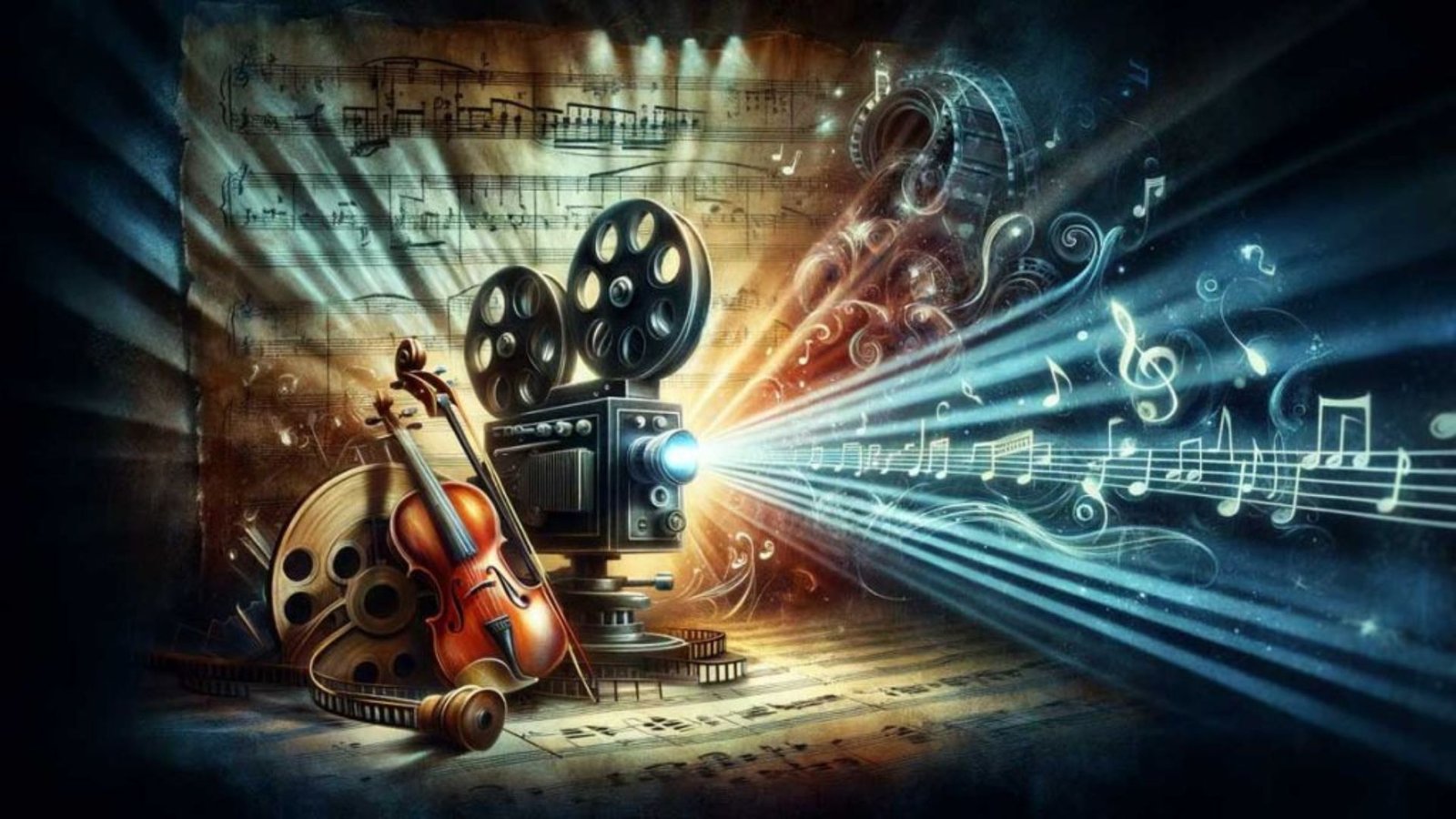Music plays a crucial role in film and television, shaping narratives, evoking emotions, and enhancing the overall viewing experience. From stirring orchestral scores to iconic pop songs, the right music can elevate a scene, making it memorable and impactful. This article delves into the various ways music influences film and TV, exploring its emotional, narrative, and cultural significance.

The Emotional Power of Music
Setting the Mood
Music has the unique ability to set the tone of a scene, influencing how viewers perceive and feel about the story unfolding before them. A suspenseful score can heighten tension in a thriller, while a soft melody can evoke nostalgia in a romantic drama. For example, the haunting theme of “Jaws” immediately signals danger, creating an atmosphere of fear and anticipation.
Enhancing Emotional Depth
Music also serves to deepen emotional connections between characters and audiences. Songs chosen for pivotal moments can resonate with viewers, amplifying feelings of joy, sadness, or nostalgia. In “The Fault in Our Stars,” the use of indie music underscores the bittersweet nature of love and loss, making the audience feel more deeply invested in the characters’ journeys.
Music as a Narrative Tool
Character Themes
Film and TV composers often create specific themes associated with characters, helping audiences to identify and connect with them on a deeper level. For instance, the iconic score of “Star Wars” features distinct themes for key characters like Darth Vader and Luke Skywalker, reinforcing their roles and emotional arcs throughout the saga.
Advancing the Plot
In some cases, music can drive the narrative itself. In “Baby Driver,” the story is intricately tied to its soundtrack, with each song carefully selected to align with the action on screen. This innovative approach not only entertains but also propels the plot forward, making music an integral part of the storytelling process.
Cultural Significance of Music in Film and TV
Reflecting Societal Trends
Music in film and TV often reflects the cultural zeitgeist, capturing the spirit of a particular era. The use of popular songs from specific decades can transport audiences back in time, enhancing the authenticity of the setting. For example, the soundtrack of “Stranger Things” prominently features 1980s hits, effectively immersing viewers in the nostalgia of that decade.
Shaping Music Trends
Conversely, film and TV can also influence music trends. A song featured in a popular show or movie can experience a resurgence in popularity, leading to renewed interest in the artist and genre. The inclusion of “Old Town Road” in the series “Euphoria” helped propel the track to the top of the charts, demonstrating the powerful connection between visual media and music consumption.
The Role of Composers and Soundtracks
Composers’ Impact
The work of composers is vital in crafting the musical landscape of film and TV. Composers like Hans Zimmer, John Williams, and Ennio Morricone have created some of the most recognizable scores in cinematic history. Their ability to blend various musical elements to evoke specific emotions is what makes their work so impactful.
Soundtrack Albums
Soundtracks often become standalone works of art, with fans eager to listen to the music outside the context of the film or show. Successful soundtracks can dominate the charts, as seen with the “Guardians of the Galaxy” soundtrack, which features classic hits and has introduced a new generation to timeless music.
Conclusion
The influence of music in film and TV is profound and multifaceted. It enhances emotional experiences, drives narratives, and reflects cultural trends while also shaping music consumption and appreciation. As audiences continue to engage with visual media, the role of music will remain a vital element in creating unforgettable moments on screen.










